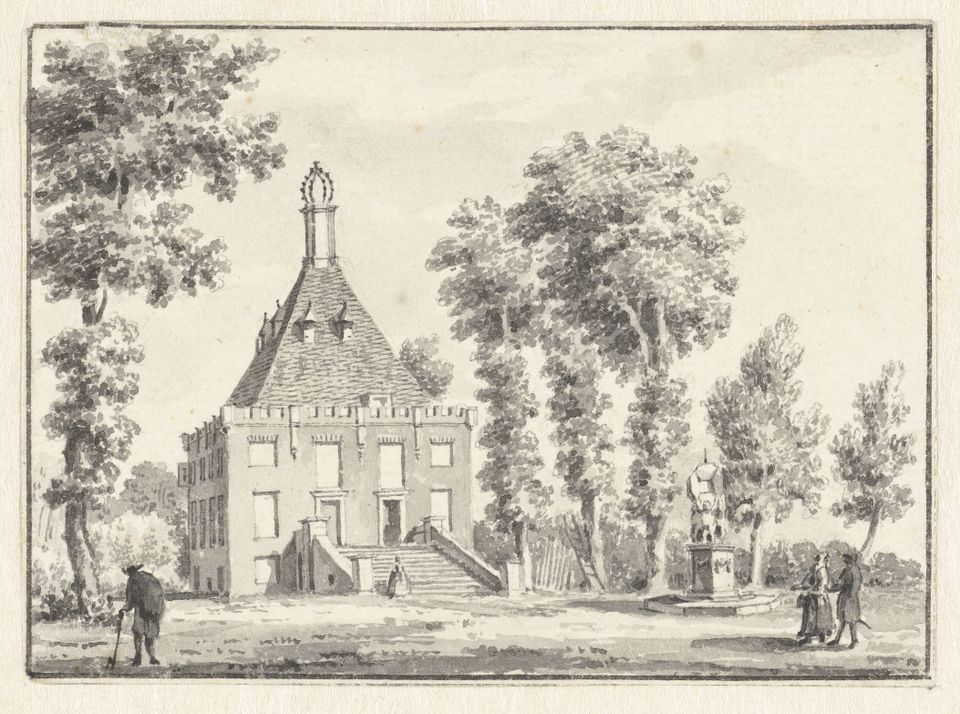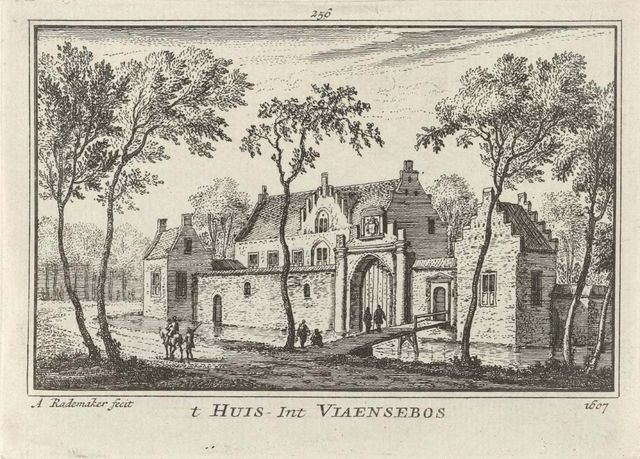
Amaliastein
Noise and waste: In the 16th Century, these were already well-known problems in Dutch towns. Certainly during the summer months, there was an odour nuisance caused by waste on the streets. Rich people therefore built summer residences, country estates or pleasure grounds where they could escape the town in the height of summer. Hendrik van Brederode also built a summer residence in the year 1560 for his wife Amalia, Countess of Nieuwenaar. He named this castle located in the Vianen forest Amaliastein after her. With its strategic location at the transition from high to low land, the supply and drainage of water in the castle moat could be controlled with ease.
Amalia, Countess of Nieuwenaar a…
Noise and waste: In the 16th Century, these were already well-known problems in Dutch towns. Certainly during the summer months, there was an odour nuisance caused by waste on the streets. Rich people therefore built summer residences, country estates or pleasure grounds where they could escape the town in the height of summer. Hendrik van Brederode also built a summer residence in the year 1560 for his wife Amalia, Countess of Nieuwenaar. He named this castle located in the Vianen forest Amaliastein after her. With its strategic location at the transition from high to low land, the supply and drainage of water in the castle moat could be controlled with ease.
Amalia, Countess of Nieuwenaar and Hendrik van Brederode, could not enjoy Amaliastein for long. In the year 1567, Hendrik had to flee from Spanish forces due to his role as the “Grote Geus” in the resistance against Spanish rule. Spanish troops invaded Vianen on 3 May 1567. All possessions of Hendrik van Brederode were declared to be forfeited. After the pacification of Ghent in the year 1576, the Brederodes managed to get their property back. Hendrik has already died in Germany and his wife also continued living in Germany until her death.
Johan Wolfert of Brederode renovated Amaliastein in the 17th Century, but just as at Batestein Castle, it soon began to fall into disrepair again. After some changes in ownership, the building was demolished in the year 1814.
Further reading: Brederode statue, Grote Kerk Vianen (Great Church), Sundial on Lijnbaan, Large Pump/Vianen Town Pump, Vianen town centre, Petrus and Pauluskerk Everdingen.



